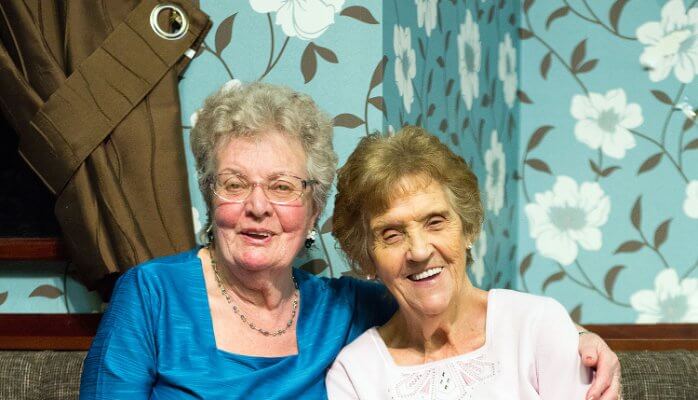
In the usual heady rush of TV scheduling, we were contacted at the last minute a few weeks ago – just two weeks before transmission – to promote the thoughtful and provocative documentary Last Whites of the East End (Lambent Productions, BBC One, Tuesday 24 May).
This revealing documentary looked at contemporary Britain and the impact of immigration on one long-standing community – the East End cockneys. Over the past fifteen years the East End's population has undergone a dramatic transformation and now Newham has reached its tipping point, becoming the place with the lowest white British population of anywhere in the UK.
Last Whites of the East End explores stories of change in this iconic and rapidly changing London borough. Following the journeys of those people leaving, or staying in a place that no longer feels like home, the film traces the last East Enders who have started to feel 'like foreigners in their own land' as the community their families have lived in for generations changes around them, and their Cockney culture disappears.
The documentary attempts to discover the real reasons why people are leaving, and what perceptions inform those choices. These are the stories of East Enders dealing with rapid change, voicing their honest opinions about what is happening to their culture and communities – and perhaps realising their complicity in the demise of the culture they hold dear.
But with the European referendum looming at the end of June and immigration at the top of the agenda, the challenge was to create a thoughtful campaign that acknowledged the complexities lying beneath the surface of this story – a portrait of this tight-knit community, and what is driving them to leave.
For mixed-race bus driver Tony, it is the education on offer for his young daughter, now feeling like a minority in a majority Muslim community that has prompted him to join the exodus in search of belonging. For Usmaan, whose family arrived in Newham in the 1930s from Bangladesh, it feels like a way of life has been lost. The white friends he grew up with have long gone – and he misses them.
Journalists from the Daily Telegraph and the Daily Mail invested a lot of time and energy visiting the area and speaking to contributors first-hand resulting in thoughtful features that raised important questions.
The debate on radio and TV was similarly open and informed. On BBC London's Vanessa Feltz Show callers spoke about sweeping changes taking place across the city – from Bromley to Brixton, not just in Newham. Feltz noted that her own grandparents moved from the East End to the suburbs when they were able to. Meanwhile contributor Usmaan – whose family has lived in the East London for five generations – spoke on Eddie Nestor'sDrive Time show about his real concern that the cockney way of life would vanish.
Inevitably, sensationalist headlines did appear, including the Mail Online's page leader, '"The most racist programme I've ever watched"', in stark contrast to the Daily Mail's earlier more considered feature. But this 'scandalisation' prompted closer examination. The veteran media commentator Roy Greenslade inspected the story more closely and, in particular, how it was reported in the Times. 'The Times runs a non-story about a non-existent BBC 'backlash", wrote Greenslade, sparking further debate.
The 'backlash' turned out to refer to one tweet on twitter and seven complaints to the BBC. Furthermore, the thoughtful media coverage and comments on Twitter far out-weighed negative, knee-jerk reactions.
An astonishing 1.7m people watched the broadcast at 10.45pm on Tuesday night – it's still available on iPlayer and definitely worth a watch. If you'd like to read more the coverage we placed for this campaign, click here for our project evaluation.
